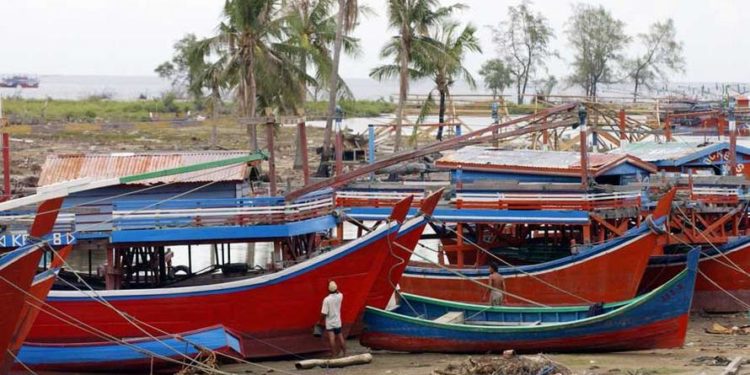FAO Fisheries and Aquaculture Department worked closely with the Emergency Division to develop a Training Programme on Fisheries and Aquaculture Emergency Response and Best Practice for both practitioners in the field and trainers of these practitioners. Last year, the new training was rolled out.
The Training programme builds upon the Fisheries and Aquaculture Emergency Response Guidance and the Guidelines for the Fisheries and Aquaculture Sector on Damage and Needs Assessments in Emergencies.
These guidance documents were the first systematic guidelines available to support those responding to an emergency involving the fisheries and aquaculture sector, and were designed to improve the quality and accountability of preparedness and response to emergencies affecting the fishery and aquaculture sector.
‘The demand for this publication was voiced by our partners. People who depend on fisheries and aquaculture for their livelihoods are increasingly vulnerable to natural and man-made hazards, which are, unfortunately, occurring more frequently and intensively, and hit developing countries hardest,’ explained Florence Poulain, Fisheries and Aquaculture Officer at FAO who helped develop the guidelines, ‘This work draws on best practices and experience in responding to disasters that have affected communities working in fisheries and aquaculture. We are very excited to have these guidelines, and now we are eager to work with professionals in emergency response and in fisheries and aquaculture to help them understand and apply their content in their work.’
A first training of trainers session was held in March 2015 in Fiuggi, with twenty-two attendees participated in the training sessions. Some of the participants had specialist sector experience and others participants had emergency response experience. The participants participated on three days of training in fisheries and aquaculture emergency response and best practice. This allowed them to understand the key messages and methodology that they are expected to deliver when they run trainings in their own context.
In the second component of the session, participants were provided with the full set of training materials, which they then had the opportunity to practise in a conducive learning environment, with feedback from the trainers and their peers. In this part of the training of trainers, participants also received guidance on adult learning principles, with the expectation that they would incorporate those principles when training at the country level.
‘The need for this training workshop has been around for years’ said Neil Marsland, Senior Technical Officer in FAO’s Emergency Division. ‘Only now do we have the tools and the underlying technical guidance to undertake it. Assessing damage and loss in fisheries is a key requirement in many disaster situations, this training will help us build the necessary capacity to improve the quality of the assessments undertaken.’









